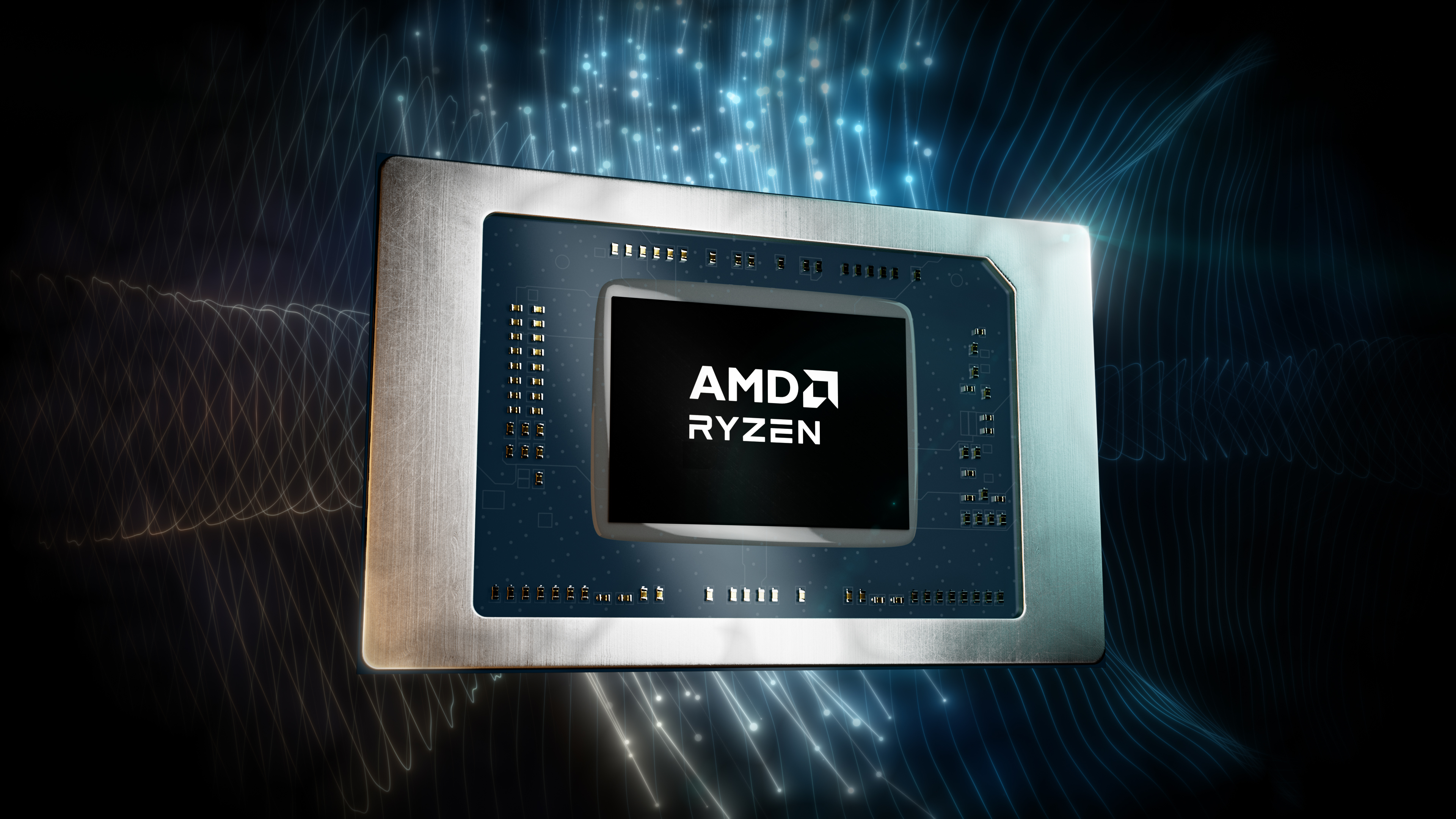AMD hit with lawsuit over hybrid bonding tech behind potent 3D V-Cache — Adeia claims company's gaming chip infringes 10 of its patents
The IP firm claims AMD’s stacked cache relies on its patented bonding methods.

Adeia has filed a pair of patent infringement lawsuits against AMD in the U.S. District Court for the Western District of Texas, claiming that AMD’s chips incorporate patented innovations covered by its hybrid bonding IP portfolio.
The company says ten patents are at issue — seven covering hybrid bonding and three tied to process nodes used in advanced logic and memory manufacturing. The litigation, announced November 3, follows what Adeia describes as years of failed licensing talks. AMD has not yet commented.
Hybrid bonding technology sits at the heart of AMD’s 3D V-Cache design, the feature that gives Ryzen X3D processors their gaming advantage and server-class cache density. Instead of solder bumps, it fuses copper and dielectric surfaces directly between dies, creating a near-monolithic connection at micron-scale pitch. That allows a 64MB slab of SRAM to be stacked on each Zen compute die without overwhelming its thermal or electrical limits. The technique is widely understood to use TSMC’s SoIC process family, a form of hybrid bonding that enables ultra-dense 3D integration.
Adeia, which spun out of Xperi, claims ownership of a large portfolio of bonding and interconnect IP. Its DBI and ZiBond technologies have already been licensed to major players in memory, CMOS image sensors, and 3D NAND. The company now argues AMD’s products make “extensive use” of the same concepts, asserting that its patented work has “greatly contributed” to AMD’s success.
Hybrid bonding could be the foundation for the next phase of chip scaling, as performance gains shift from transistor density to vertical integration. AMD’s roadmap leans heavily on stacked designs, not just for Ryzen but for EPYC and future accelerators that layer compute, memory, and I/O. If Adeia’s claims survive early procedural challenges, the case could test how much of that stack belongs to the IP holder and how much to the foundry in any judgments that follow.
Few expect any near-term disruption to AMD’s products, since injunctions in patent cases of this kind are rarely granted under post-eBay v. MercExchange precedent. The more immediate question is whether Adeia’s claims can survive the early procedural hurdles that often decide the outcome long before trial.
AMD and its foundry partners are almost certain to challenge the patents through inter partes review at the Patent Trial and Appeal Board, arguing that the asserted claims are either too broad or already covered by TSMC’s process IP.
Get Tom's Hardware's best news and in-depth reviews, straight to your inbox.
If the patents hold up, the case could set a new boundary between proprietary bonding methods and foundry-specific implementations, effectively defining who owns the connective tissue of 3D chip design. A negotiated settlement remains the most likely outcome, but the ruling could influence how every hybrid-bonded processor, from Ryzen to Intel’s Foveros Direct, is valued in future licensing deals.

Follow Tom's Hardware on Google News, or add us as a preferred source, to get our latest news, analysis, & reviews in your feeds.

Luke James is a freelance writer and journalist. Although his background is in legal, he has a personal interest in all things tech, especially hardware and microelectronics, and anything regulatory.
-
Notton "U.S. District Court for the Western District of Texas"Reply
You've said enough.
Only patent trolls file electronic tech patent suits here. -
DS426 Adeia? Reminds me of Ageia.Reply
Sounds like judge shopping. Good luck with that. Seems like they're shooting for a settlement, something they've turned to since the licensing talks didn't pay out. -
George³ Reply
Hmm, is Adeia blackmailing AMD in try to give out-of-court settlement? Because financial lost of AMD maybe will greater non matter of Court decision.Notton said:"U.S. District Court for the Western District of Texas"
You've said enough.
Only patent trolls file electronic tech patent suits here. -
rluker5 I thought the hybrid bonding was TSMC and AMD was just ordering it after getting their design to work with it. Shouldn't these guys go after TSMC instead?Reply
https://www.semiconductor-digest.com/amd-announces-use-of-tsmc-3d-fabric-for-stacked-vertical-sram-cache-techinsights-confirms-current-ryzen-5950x-is-tsv-capable/ -
spongiemaster Reply
Correct, but patent trolling foreign companies is more complicated. Adeia is looking for any easy payday which wouldn't be going after TSMC.rluker5 said:I thought the hybrid bonding was TSMC and AMD was just ordering it after getting their design to work with it. Shouldn't these guys go after TSMC instead?
https://www.semiconductor-digest.com/amd-announces-use-of-tsmc-3d-fabric-for-stacked-vertical-sram-cache-techinsights-confirms-current-ryzen-5950x-is-tsv-capable/ -
thestryker Where have we seen this before: a company that solely exists as a licensing house suing a large company flush with cash.Reply
Glancing through the company history it looks more like they've just been a collector of other companies than a producer of anything. They spun off the actual products division so the primary company just exists to fleece money from other companies now. -
bit_user I think there's a simple economic solution to the problem of patent trolling. Just make it increasingly expensive to maintain a patent. That way, companies will only hold onto the patents that are fundamental to their business. Patent trolls won't be able to hold on to as many, nor will the bankrupt shells they devour to get them in the first place.Reply
Also, it'd be interesting if you could get insurance against being sued by them. So that basically, you'd end up having unlimited funds to fend off patent trolls, without the risk of going out of business, yourself. That would basically nullify the incentive to settle and I'll bet that would dissuade a lot of them.
The more you can do to reduce the profit margins of patent trolling, the less attractive it'll be for the investors who fund a lot of these operations. -
sygreenblum Reply
I like your idea of progressively expensive patents over time. They should also end no matter what at 10 years, regardless of how much money they want to pay. 20 year patents are just too long in this industry.bit_user said:I think there's a simple economic solution to the problem of patent trolling. Just make it increasingly expensive to maintain a patent. That way, companies will only hold onto the patents that are fundamental to their business. Patent trolls won't be able to hold on to as many, nor will the bankrupt shells they devour to get them in the first place.
Also, it'd be interesting if you could get insurance against being sued by them. So that basically, you'd end up having unlimited funds to fend off patent trolls, without the risk of going out of business, yourself. That would basically nullify the incentive to settle and I'll bet that would dissuade a lot of them.
The more you can do to reduce the profit margins of patent trolling, the less attractive it'll be for the investors who fund a lot of these operations.
As far as insurance. Professional gamers insure their hands, adult stars insure their ......... fill in the blank. An insurance company will insure just about anything, for a fee of course. -
thestryker Reply
While I do agree your solution would work I think there's a much simpler regulatory solution: If you're not the original owner of a patent (and didn't come by it by way of say familial inheritance) and aren't productizing it (giving a reasonable amount of time for this to happen and make promises to do so legally binding similar to earnings reports) then the patent isn't valid anymore. I do know this has even less a chance of happening than your suggestion, but it'd be faster and simpler.bit_user said:I think there's a simple economic solution to the problem of patent trolling.